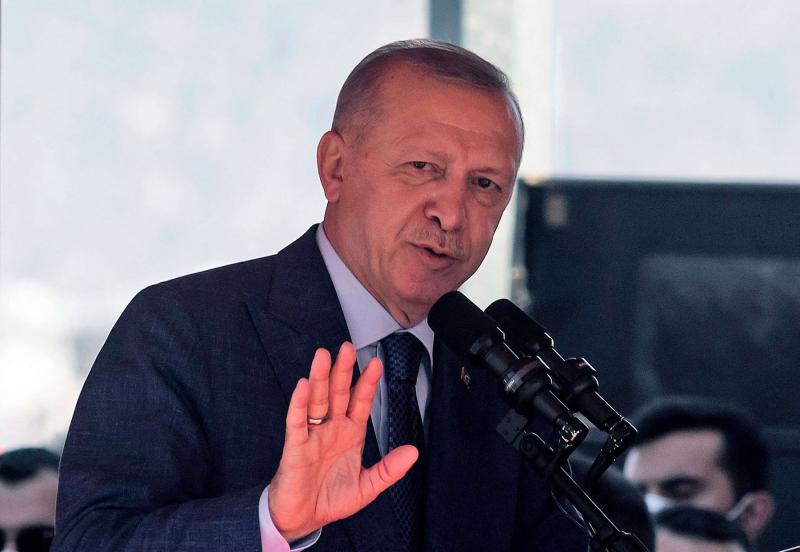Turkish President Recep Tayyip Erdogan told his Tunisian counterpart Kais Saied in a phone call on Monday that the continuation of the Tunisian parliament’s work was important for the region, his office said, after Saied suspended parliament and dismissed his premier.
In a statement, Turkey’s presidency said Erdogan “emphasised that the parliament of Tunisia … maintaining operations despite all difficulties was important for the democracy of Tunisia and the region,” adding that the work of the parliament was “vital.”
“Erdogan stated that it was very valuable for the democracy of Tunisia to be protected, for its freedoms to be guaranteed,” it said.
Erdogan’s statements unleashed the ire of many Tunisians, who took to social media to overwhelmingly condemn Turkey’s meddling in their country’s affairs.
Some social media users referred to Erdogan’s autocratic rule in Turkey and his regime’s sweeping political crackdown on opposition, activists and journalists.
“If Erdogan is that fond of democracy and its exercise in the region, then maybe he should start with Turkey, free all political prisoners, apologise for the Turkish people and step down from presidency,” read a Facebook post, that was extensively shared.
Tunisians are suspicious about Turkey’s intentions in their country. Since the rise of Tunisian Islamists to power in late 2011, Turkey has been accused, by many Tunisian political actors, of coordinating with Ennahda leader Rached Ghannouchi to advance its agenda through the country.
Secularist groups in Tunisia have also been blaming the Islamist influence since 2011 for being a factor in increased imports from Turkey.
Over the last decade, Turkey, as an emerging regional economic power, has expanded its sphere of influence and promoted its interests in Tunisia through its private sector and by intertwining formal and informal economic strategies.
In 2005, Turkey and Tunisia signed a free trade agreement that came into force on June 1 of that year.
Turkey, according to local experts, has sought to strengthen its influence in the Maghreb region through economic, political and cultural means and in recent years, by its military presence in Libya.
In the new Turkish strategy, North Africa is both a goal and a means: it is a target for Turkish trade, with a market of about 250 million consumers and a source for potential strategic alliances. Turkey seeks to be a key player in the Maghreb which it can use as a gateway to sub-Saharan Africa.
Tunisia’s awareness of such goals coupled with an alarming trade deficit in Turkey’s favour, with a deficit of $100 million for the first two months of 2017, for example, has complicated relations in recent years.
In 2018, the Tunisia government suspended the free trade agreement with Turkey. Since then, Turkish products have been subjected to high taxation. Turkey’s meddling in the country’s internal affairs has also been condemned by Tunisian opposition parties, leading to calls in 2020 to hold a public debate over Ghannouchi’s contacts with Turkey and the Muslim Brotherhood-affiliated figures in Libya.
In July of the same year, Ghannouchi survived a no-confidence vote, in a development that exacerbated political tensions in Tunisia and raised public frustration with Ennahda Islamist party.
Source: Arab Weekly
***Show us some LOVE by sharing it!***



